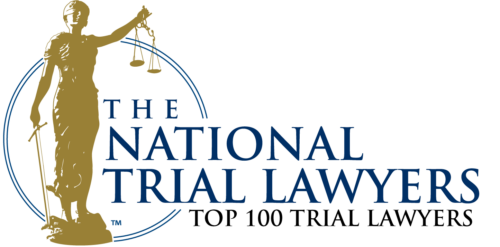Medical professionals are trusted by patients to provide them with the best possible care during their treatment. However, there are instances where medical providers make grave errors that result in serious damages.
Medical malpractice is a complex matter that can made easier for victims with the help of our seasoned attorneys. In Pennsylvania, medical malpractice comes in various forms, and identifying the cause of injury is pivotal. Some malpractice cases might be glaringly obvious, while others could remain unnoticed for an extended period. The circumstances leading to the harm caused will play a vital role in determining the outcome of your case, and our team can help you get the evidence you need to prove it. Moreover, other healthcare providers besides the doctor might also be liable for the injuries sustained, increasing your chances of getting the compensation you deserve.
Contact The Reiff Law Firm at (215) 709-6940 for your free case review with our medical malpractice attorneys.
Common Types of Medical Malpractice in Pennsylvania
Medical malpractice cases in Pennsylvania can involve many types of errors. Victims bear the burden of demonstrating not only that a healthcare provider made a mistake but also that this mistake directly resulted in harm. Given how complex these cases can be, those harmed by their healthcare provider should reach out to our medical malpractice attorneys, who can help get compensation to cover their losses. Understanding the following types of negligence encountered in the healthcare system is the first step toward holding negligent parties accountable:
Misdiagnosis and Delayed Diagnosis
One of the most prevalent forms of medical malpractice is misdiagnosis and delayed diagnosis. This occurs when a healthcare professional fails to accurately or timely identify a patient’s condition, leading to incorrect treatment, delayed treatment, or no treatment at all.
In misdiagnosis and delayed diagnosis claims, you must show that a doctor with similar training and experience and under similar circumstances would not have made the same error. Our team can help prove where your doctor’s misstep occurred.
Surgical Errors
Surgical errors are another alarming form of medical malpractice. These mistakes can range from operating on the wrong body part or patient to leaving surgical instruments inside the patient’s body.
Victims of surgical errors often face additional surgeries, prolonged recoveries, and sometimes permanent disability. We will help you show that the surgeon’s actions deviated from the standard of care expected by surgeons in the same practice area and experience level.
Post-Operation Negligence
Post-operation, or “post-op,” negligence could happen at any point after your operation. Your doctor could have failed to order prophylactic antibiotics or your nurses did not change your bandages frequently enough. Or you might fall victim to a hospital-born illness.
What makes these cases challenging is determining who caused your harm. Several medical staff members are typically responsible for various parts of a patient’s post-op care, which means nurses, anesthesiologists, or other providers might be liable.
In other cases, we might need to help you sue an entity like the hospital if its negligence caused you to contract a hospital-acquired sickness. In other cases, we will need to file a lawsuit against a private practice because the doctor did not work for the hospital. We can review your medical records to determine which parties failed to provide you with the care you needed after your operation.
Medication Errors
Medication errors often occur at various stages of patient care. Malpractice can happen when prescribing the wrong amount of medication, dispensing too much, or administering the medication improperly. Common medication errors include prescribing the wrong medication, incorrect dosage, or drugs that interact negatively with a patient’s existing medications.
Birth Injuries
Birth injuries resulting from medical malpractice can have devastating effects on children and their families. These injuries can occur from negligence during prenatal care, labor, delivery, or post-birth care. Common examples include failing to diagnose maternal health conditions, mishandling complications during birth, or causing injury with medical instruments.
These claims typically require showing that the healthcare provider’s negligence led to the injury, which could have been prevented with proper care. These cases are particularly complex because of the involvement of both mother and child and the long-term implications of the injuries, which often call for the testimony of expert witnesses to explain the specifics to the court.
Anesthesia Errors
Anesthesia errors, though less common, are among the most dangerous types of medical malpractice. Errors can include administering too much or too little anesthesia, failing to monitor the patient’s vital signs, or not accounting for a patient’s medical history and allergies. The consequences of anesthesia errors can be catastrophic, including brain damage, asphyxia, or death.
Steps to Filing a Medical Malpractice Claim in Pennsylvania
A medical malpractice claim is an involved and, oftentimes, lengthy process. But with the help of our team, you can know what to expect as your case progresses and how to prepare. The following steps are typical in Pennsylvania medical malpractice cases:
Determining if You Have a Case
The first step in pursuing a medical malpractice claim is to determine whether you have a valid case. This involves assessing whether the healthcare provider’s actions, or lack thereof, deviated from the standard of care and directly caused your injury. Consulting with our attorneys is the first step to getting justice for your injuries.
Obtaining Your Medical Records
One of the most crucial pieces of evidence in medical malpractice cases is your medical records. These records contain detailed information about your diagnosis, treatment, and overall care.
To gather this evidence, you will need to request a complete set of records from every healthcare provider involved in your care. This includes hospitals, clinics, physicians, and any other healthcare professionals who have played a role in your treatment. It is important to obtain records from all providers, even if you think they might not be relevant to your case.
Once you have obtained your medical records, you can review them with our attorneys to identify any potential deviations from the standard of care that you received. However, these records are legally protected, so you will need to follow the proper procedures to obtain them.
Filing a Certificate of Merit
According to 231 Pa. Code Rule 1042.3, you are required to file a certificate of merit within 60 days of filing a medical malpractice lawsuit. This certificate must be signed by a licensed professional considered appropriate and qualified. This typically means a doctor with the same qualifications as the one accused of malpractice. More specifically, the expert making your statement needs to have comparable education, experience, knowledge, and training as the doctor you are suing. The court will ultimately decide if the expert meets these qualifications.
This professional must attest that the healthcare provider in question deviated from the acceptable professional standard required under the circumstances. Additionally, the professional must state that this deviation was a direct cause of the harm that the plaintiff suffered. However, the expert giving the statement for your certificate does not need to be the same one that testifies on your behalf in court.
Essentially, the certificate of merit serves as a gatekeeper to prevent frivolous lawsuits from proceeding in court. This requirement ensures that claims have a legitimate basis and that plaintiffs have a sufficient level of evidence to support their claims before proceeding with the lawsuit. Doing so helps to protect healthcare providers from undue legal action and from overburdening the court’s limited resources.
Filing the Lawsuit
After you have collected all the required documents and received a certificate of merit, the next step is to file the lawsuit. This includes preparing a formal complaint and filing it with the appropriate court.
In the complaint, you will need to provide a detailed account of your grievances against the healthcare provider, the injuries or harm you suffered, and the amount of compensation you are seeking. Once the complaint is filed, the defendant will be served with a copy, and they will then have the opportunity to respond by answering the complaint with a filing of their own.
Going Through the Discovery Process
After your lawsuit is filed, both parties enter into a phase called “discovery.” During this phase, both sides are allowed to exchange information and evidence related to the case. The purpose of discovery is to encourage transparency, facilitate settlement negotiations, and prepare for trial.
Discovery tools come in various forms, including interrogatories, depositions, and requests for documents. Interrogatories are written questions that one party sends to the other, which must be answered under oath. Depositions involve sworn testimony taken outside of court, usually in a lawyer’s office, where a witness is asked questions by the opposing side’s attorney. Requests for documents are formal requests for specific documents that are relevant to the case which one party sends to the other.
Failure to comply with discovery requests can result in sanctions. That is why they are such a powerful tool for building your case.
Gathering Expert Testimony
In most cases in Pennsylvania, expert testimony is essential to establish what standard of care the defendant deviated from and how they breach this standard. Our attorneys will work closely with medical experts who can review your medical records, the facts of the case, and provide professional opinions on your behalf to clearly show the court how your provider violated their duty of care.
The role of the medical expert is to explain complex medical concepts, procedures, and standards of care to the jury or judge. Like the expert for your Certificate of Merit, the expert testifying in court must also have the same experience, education, training, and knowledge in the relevant area of care as the defendant healthcare provider.
We can also work with experts on damages to help establish the extent of your injuries, their long-term prognosis, and the future medical care you might require.
However, selecting the right medical expert is critical. Our team will consider factors such as the expert’s qualifications, experience, and reputation. We will also look for someone who can effectively communicate complex medical concepts and withstand cross-examination by the defense. However, we will ensure that you have a practicing expert who actually works in their field to testify for you, rather than a professional expert, so their credibility is not undermined.
Conducting Settlement Negotiations
Many medical malpractice cases in Pennsylvania are settled out of court. Settlement negotiations can occur at any stage of the process but are most common after the discovery phase and once both sides have a clear understanding of the strengths and weaknesses of their case. Our team can negotiate on your behalf to reach a settlement that adequately compensates you for your injuries.
Going to Trial
If a settlement cannot be reached, your case will proceed to trial. During the trial, both sides present their evidence, including expert testimony, to a judge or jury. After hearing all the evidence, the judge or jury will decide regarding liability and the amount of damages to be awarded.
Healthcare Providers that Are Commonly Sued for Medical Malpractice in Pennsylvania
Part of what makes medical malpractice claims so challenging is determining which and how many parties contributed to your injuries. The following medical providers are typically held liable in malpractice lawsuits:
General Practitioners
General practitioners or family physicians are often the first point of contact within the healthcare system, making them pivotal in the early detection and management of various health conditions. The broad scope of their practice, coupled with the high volume of patients, often contributes to why they deviate from their standard of care. If they have a volume practice, they might not give you the care you need since they make money by turning over more business.
Surgeons
Surgeons are among the most frequently sued healthcare professionals we see. The nature of surgery involves inherent risks, including complications from the procedure itself and potential post-operative issues.
Surgical errors can range from operating on the wrong site or organ to leaving surgical instruments inside the patient. The high stakes and the complex, invasive nature of surgical procedures make this field particularly prone to malpractice claims.
Obstetricians and Gynecologists
Obstetricians and gynecologists (OB/GYNs) also face a high rate of malpractice suits, largely because of the delicate nature of their practice areas. Complications during childbirth can lead to severe injuries to both the mother and the newborn, with long-lasting or even permanent effects. Errors in prenatal care, failure to recognize signs of distress during delivery, and inadequate postnatal care are common grounds for litigation against OB/GYNs.
Radiologists
Radiologists play a crucial role in diagnosing conditions through imaging studies, such as X-rays, MRIs, and CT scans. However, misinterpretation of these images can lead to missed or incorrect diagnoses, significantly impacting patient outcomes. Given the reliance on radiological imaging for diagnosing a wide range of conditions, errors in this field can have far-reaching consequences, leading to malpractice lawsuits.
Anesthesiologists
Anesthesiology is a highly specialized field that involves administering anesthesia to patients undergoing surgery or other procedures. Errors in dosage or failure to monitor a patient’s vital signs can result in catastrophic outcomes, including brain injury or death. Our team will gather the records to show where they committed their error.
Nursing Home Staff and Long-term Care Facilities
Because of the vulnerable nature of their patient populations, nursing homes and long-term care facilities increasingly face malpractice lawsuits. Claims often arise from allegations of neglect, abuse, or failure to provide adequate medical care. As technology makes it easier than ever to stay in contact with elderly family members, legal actions against nursing home staff and administrators are becoming, unfortunately, much more common.
Our Pennsylvania Medical Malpractice Attorneys Can Help Get Justice for Your Injuries
For a free case assessment, speak with our medical malpractice lawyers at The Reiff Law Firm today at (215) 709-6940.















